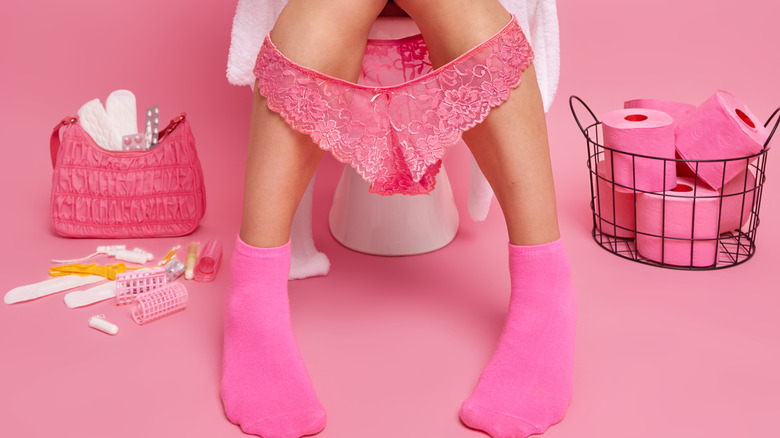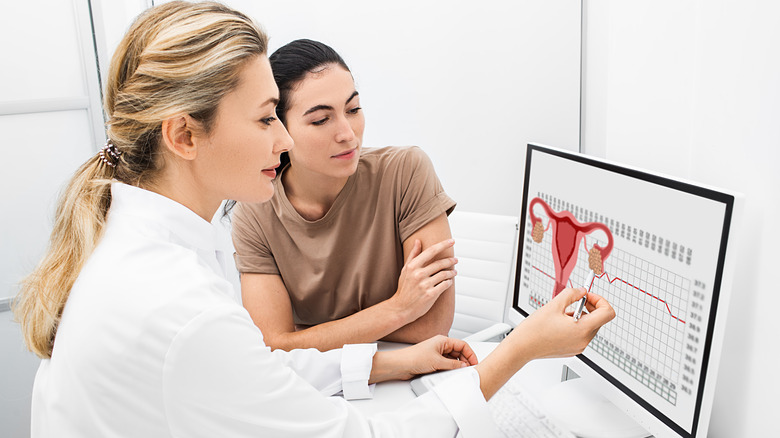Why Do You Go To The Bathroom More On Your Period?
Whether you call it Aunt Flo or your special time of the month, your period is not usually an event you're looking forward to. According to the Mayo Clinic, the number of days in a menstrual cycle and the length of a period can vary from one person to the next. The menstrual cycle is counted from the first day of one period to the first day of the next period. Cycles can range from 21 to 35 days. A normal menstrual period can last for two to seven days.
A normal period may come with a host of symptoms that can cause discomfort. Some of those symptoms include bloating, cramps, acne, insomnia, headaches, low back pain, and mood swings, according to Healthline. For some women, the onset of their periods means increased trips to the bathroom to go number two. You may be wondering, how can something happening in my reproductive system affect my digestive system? Let's take a look.
Prostaglandins and progesterone play a role
You may hear women talk about their experience using a menstrual cup, or which tampons work the best for heavy flow, but increased frequency in pooping is not usually discussed. However, according to Healthline, it is common for women to experience an increase in poop during their periods, also known as period poop. What causes period poop? It seems that prostaglandins, chemicals that your body releases during your periods, are the cause.
According to Healthline, prostaglandins stimulate the smooth muscles of the uterus, allowing it to contract and get rid of the uterine lining during your period. When excess prostaglandins are released, they enter the bloodstream and impact the smooth muscles of your intestines. This causes your body to release more stool, and sometimes diarrhea, during your period. However, prostaglandins may not be the only thing that causes an increase in poop during your periods.
Progesterone may also play a role in period poop. Dr. Lucky Sekhon, a board-certified ob-gyn, explained that progesterone can cause constipation, but levels drop at the start of your period (via Popsugar). According to Popsugar, Sekhon said, "This decrease in progesterone removes this source of constipation, which also compounds the effect of your period on increased bowel activity."
Diet and the use of medications may help
Although an increase in poop during your period is normal, is there anything you can do to avoid it? According to Popsugar, Dr. Rabia A. De Latour, gastroenterologist and assistant professor of medicine at NYU Langone Health, said there's nothing much you can do to avoid period poop, but avoiding trigger foods and staying hydrated could help.
To help decrease period poop, Dr. Donald Ford, family medicine physician and Chairman of the Department of Family Medicine at Cleveland Clinic, said, "Eat healthy food and get plenty of natural fiber." In addition, Dr. Ford recommends staying hydrated during your period because there is more water and nutrient loss during bouts of diarrhea.
Taking ibuprofen before your period can help ease period poops by blocking excess prostaglandins. If your digestive issues become severe, Dr. Ford recommends considering oral contraceptives to reduce the frequency of your periods and period poop (via Cleveland Clinic).



